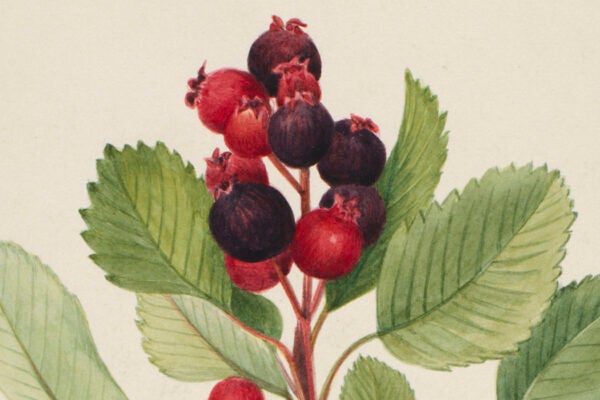The Medicinal Wood That Turned Water Blue
For nearly half a millennium, botanists sought the "true" identity of Lignum nephriticum, a mysterious marvel that confounded early modern science.
Za’atar: From Ancient Texts to Modern Conflict
More than an herb, za’atar shapes, narrates, and anchors identity and political dynamics of the Eastern Mediterranean and Sinai Peninsula.
Tonka Bean: The Tale of a Contested Commodity
The rise and fall of the sweet-smelling seeds of Dipteryx odorata stands in stark contrast to the tree’s lasting presence in global markets.
Using Pollen To Make Paper, Sponges, and More
Reengineered, the powdery stuff could become a range of eco-friendly objects.
Dates: Civilization’s Sweetest Indulgence
Offshoots from the “Tree of Life” traveled from Mesopotamia to the Levant to the United States, beguiling everyone with their toothsome confections.
Saguaro Cactus: A Desert Sentinel’s Prickly Plight
The saguaro cactus has evolved to endure dry days and high temperatures, but even this resilient plant struggles to cope with the effects of climate change.
Juneberry: A Summer Sweet for People, Pollinators, and Birds
For millennia, Indigenous peoples in North America derived sustenance from the juneberry, known also as the misâskwatômin, serviceberry, shadbush, or saskatoon.
Coco De Mer: The Magical Derrière of the Sea
Once viewed as a precious item of mysterious origin, the seed of the coco do mer palm, though better understood today, remains a rare and valuable commodity.
Cerbera odollam: “The Suicide Tree” That Harms and Heals
Even before The White Lotus, people feared the poisonous pong-pong tree, Cerbera odollam. But there's another way to look at the plant and its effects.
Acacia: A Legacy of Artistry and Extraction
The thorny Acacia tree produces gum arabic, a versatile substance that’s been driving global trade for centuries.









